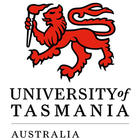Associate Degree in Arts – Classics
Associate Degree in Arts – Classics
The Associate Degree in Arts is a two-year course, full time (or part-time equivalent), that provides you with opportunities to interpret human culture and behaviour from different perspectives and periods, to explore today’s big questions and learn how to support the social and economic development of humanity, and/or to be…
Categories
COURSE DESCRIPTION
The Associate Degree in Arts is a two-year course, full time (or part-time equivalent), that provides you with opportunities to interpret human culture and behaviour from different perspectives and periods, to explore today’s big questions and learn how to support the social and economic development of humanity, and/or to be immersed in creativity, performance and innovation.
The award is designed to allow you to choose your path: it can be the first two-years of your Bachelor of Arts study, or you may like to enrol in this degree to pursue your passion and undertake two of the majors in the BA, or to extend your curiosity and try units from a number of disciplines.
The Associate Degree in Arts gives you the flexibility to choose from subjects to build your knowledge and diversify your skills from a wide range of over twenty possible majors and minors in the Bachelor of Arts as well as many individual elective study options.
Learning Outcomes:
Analyse perspectives and evaluate both broad general and technical knowledge from disciplines in the Bachelor of Arts to identify and reflect on social, cultural, political, ethical or environmental issues in local, cross-cultural and/or global contexts and their impacts;
Communicate independently, by written, oral and technology supported modes, to provide clear coherent expositions to specialist and non-specialist audiences; Apply knowledge, analytical and technical skills as a basis for decision-making and planning and
Apply disciplinary knowledge and skills with flexibility to demonstrate initiative, resilience, accountability, and social responsibility; whether working independently or in collaboration with others.
Course structure
The Associate Degree in Arts requires the completion of 200 credit points comprising:
200 credit points of Discipline Elective units or;
A 100 credit point major and 100 credit points of Discipline Electives.
Majors: Classics -Are you curious about the depravity of Roman emperors or the vengeful natures of ancient gods? Or why the fall of Rome remains a key point of comparison for modern global politics? When you study Ancient Civilisations you come to understand the everchanging nature of human societies, as well as the deep continuities that bind humanity together. You will explore topics in mythology and religion, drama, history, classical epic, and many more. As such, Ancient Civilisations is dynamic and multidisciplinary: you will gain experience with ancient historiography, literary criticism, material culture, and philosophical enquiry.
We begin with surveys of the Greek and Roman cultures which introduce skills for interpreting ancient primary sources. Our intermediate units introduce you to classical scholarship and continue to deepen skills in critical analysis of primary sources. At the advanced level, you begin to engage critically with secondary scholarship and build intellectual independence by developing your own research projects. Together, the Ancient Civilisations and Ancient Languages majors make up the Classics discipline, and both majors are taught by renowned Classics lecturers.
Our major develops critical thinking, research methods, and intercultural awareness, which prepares you for a range of professional careers that require an understanding of the ethical implications of a project, long-term effects of actions or diverse experiences of policy. Areas where such skills are needed include: Politics and Policy, Education, Human Resources and Non-Government Organisations.
Available: Online, On-campus Hobart
REQUIREMENTS
Admission to undergraduate courses at the University of Tasmania requires the completion of qualifications equivalent to a 12th year of education in Australia.
Most of our undergraduate programs have the following English language requirements.
IELTS (Academic) – 6.0 (no individual band less than 5.5)
TOEFL (iBT) 72 (no skill below: Reading 10; Listening 9; Speaking 16; Writing 19)
PTE Academic 50 with no score lower than 42
UTAS Access-English Level 6 – 60% (no individual score less than 55%)
Cambridge CAE (Certificate of Advanced English) – B Grade
Cambridge CPE (Certificate of Proficiency in English) – C Grade
Cambridge BEC (Business English Certificate) Higher – C Grade
EDUCATIONAL INSTITUTION
The University of Tasmania was officially founded on 1st January 1890 and is located at Sandy Bay, Tasmania. In addition to the main campus at Sandy Bay, it also operates out of the Newnham Campus and the Cradle Coast Campus. The most popular courses offered are the environmental studies that include wilderness management, marine sciences and indigenous studies in Tasmanian literature. Other unconventional courses include agriculture development, studies on the community and population and ocean study programs. The university also comprises of a Music Conservatorium, Art school and a School of Clinical studies.




